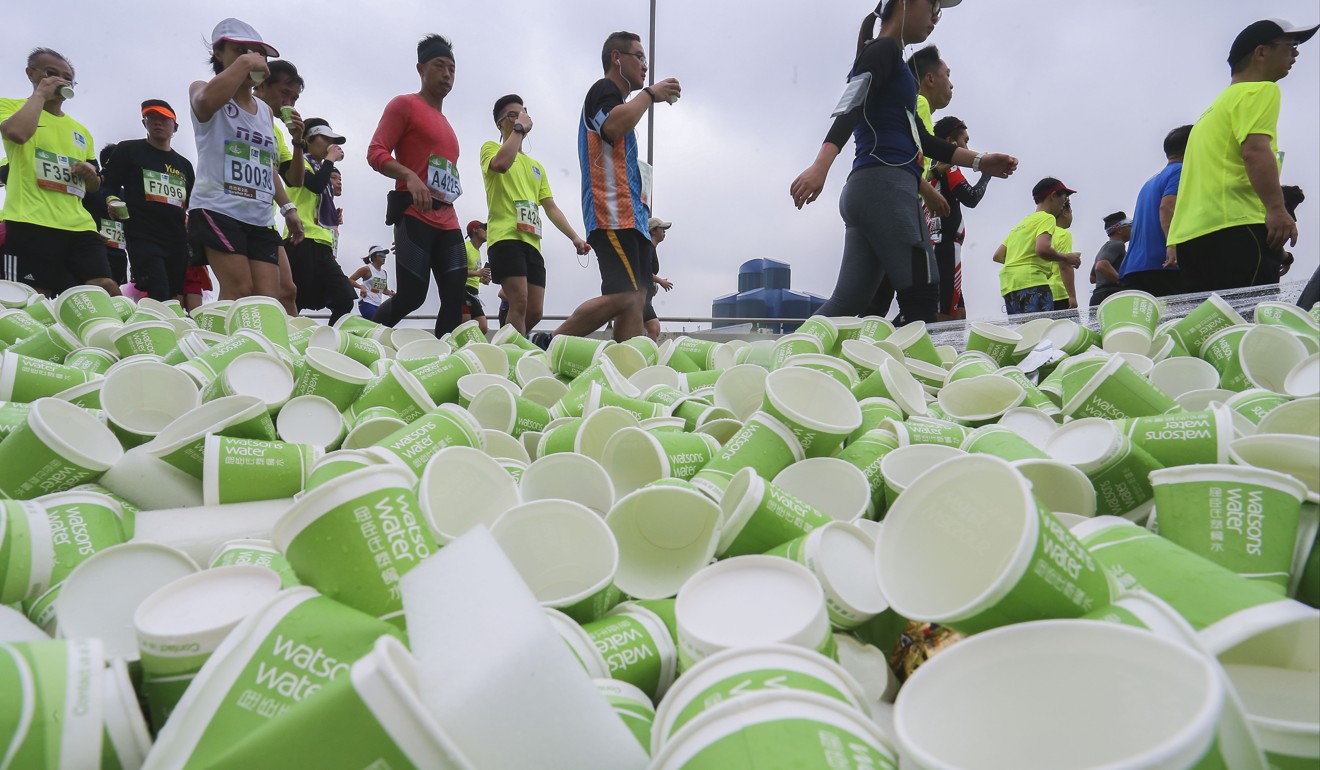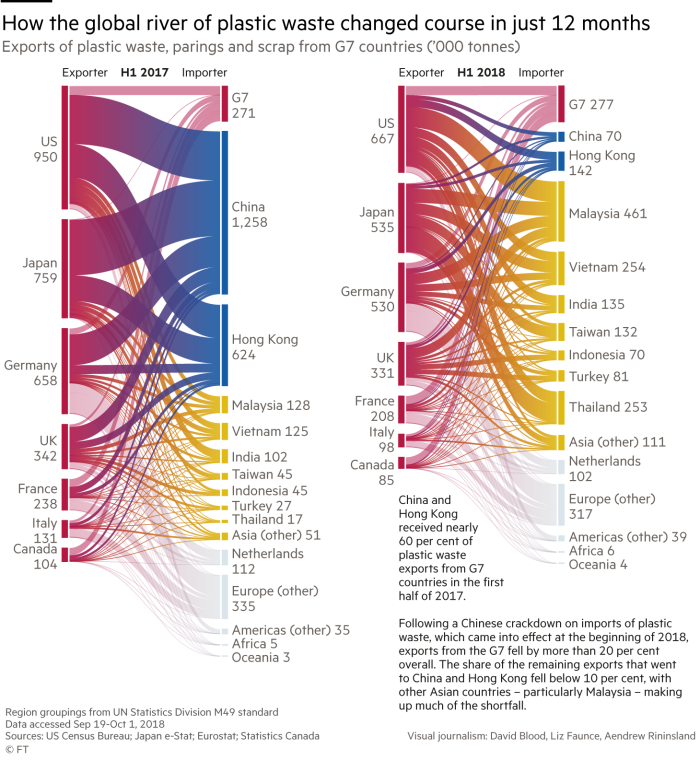That Universal Conundrum: Waste : China
"You need to organize people to start a waste-reduction system, and it's hard in the city because there are too many people."
"In the villages, people know each other, so it's not so hard to organize people. Also, they have land, so composting can be done very easily."
Chen Liwen, Kicai, China, leader, China Zero Waste Alliance NGO
"There's no proper recycling system in China. It's a very urgent problem."
"The government has all these policies and slogans, but if you go around the city you see all the waste is still mixed. There has been no change."
"We need a system and a system that runs smoothly."
Eric Lau, campaigner, Greenpeace, Beijing
"We've told the people many times to recycle and teach them the importance of recycling, but no one listens to us. No one cares."
"Chinese people understand only one thing: money."
"Maybe it will take until the next century."
Frank Chen, director of recycling, China Plastics Processing Association

Chen became a committed environmentalist while in college. She began her NGO in 2009, to begin taking matters into her own hands, and decided she would make her start in villages close to where she grew up. "There was garbage everywhere in the past", her father Lianxiang has said, not too pleased that his daughter of whom he is so proud focuses on trash. But this is what she does.
She works with a team, and has provided two buckets to every household in her parents' village, Xicai with its 480 houses. None of those houses have indoor plumbing. But Chen is convinced she will succeed in imbuing the villagers with an environmental conscience. Of the buckets, the yellow one is meant to collect trash, while the green one is for organic waste collection. The latter goes to a field on the village outskirts for composting while bottles, glass and plastics are to be recycled for money.
A local man daily at two in the afternoon drives a converted trash collection tricycle through the village. Chen uses a bullhorn to inform the locals it's time to bring out their containers, when she and her fellow volunteers talk each household through the recycling process, offering guidance to those still mixing their trash. It took her two months in the first village before she felt satisfied that people had been adequately taught to separate their trash. She enlists locals to help, particularly heads of the local women's associations.
Those local women's associations were once part of the Communist Party apparatus. "They used to be in charge of birth control, but now they don't have to do this anymore", explained Chen, in reference to the government's decision several years ago to put a halt to its enforced one-child policy, facing the outcome of the decades-old directive that resulted in too few females and too many unattached males, leaving the country with an unanticipated problem.
Not everyone is on side with Chen's preoccupation in recycling and composting. "We understand the garbage sorting, but in these villages we don't even have sewerage systems. Why should we care about trash?" Duan Hongquan said rhetorically as he approached Chen by the gate to his house. Which points to an even larger problem; the village of Xicai has 1,600 residents, representing one millionth of the population of China.
Still, it's a serious problem that the country must face. Until the 1980s China produced little garbage because it was a poor country and people bought only what they needed and would use. With the economic boom that followed along came trash, mountains of consumer garbage from computer parts, plastic packaging, milk cartons, broken cellphones, and polystyrene to cardboard boxes of every size and description; everything disposable, and there was always more where that came from, with new trash sources erupting daily.
Even though the average Chinese produces roughly half the solid waste of the average North American, China has an infinitely greater number of people. Each day, about 60 million takeout food containers are thrown out in China, with no real recycling system other than an informal network of "trash pickers", migrants from rural areas in the city scouring through urban garbage piles to extract anything of value and haul it to huge sorting centres on the outskirts of Chinese megalopolises.
Motorized tricycles chug along the roads hauling truck-sized loads of polystyrene containers or flattened boxes piled high, to recycling centres. Chinese view plastic bottles not worthy of recycling when oil prices are low since old bottles lose their cost advantage over virgin plastic when oil prices fall. China, recognizing its huge problem with waste products, has begun banning solid waste imports where once it was the world's destination for waste, importing eight million tons of plastic waste yearly.
Beijing alone churns out over 22,000 tons of rubbish daily but its large recycling centres have been shut or moved out of the city, while government attempts to control both population and land usage. Restrictions on incineration have been introduced in an effort to tackle air pollution problems. In 2017 the central government announced it planned to make trash separation compulsory for city dwellers by 2020 and those who failed to sort waste would be charged fees.
Entrenched habits die hard and the industry at the heart of the plastics problem isn't convinced that Chinese will take to recycling.

Labels: China, Recycling, Waste Reduction

<< Home